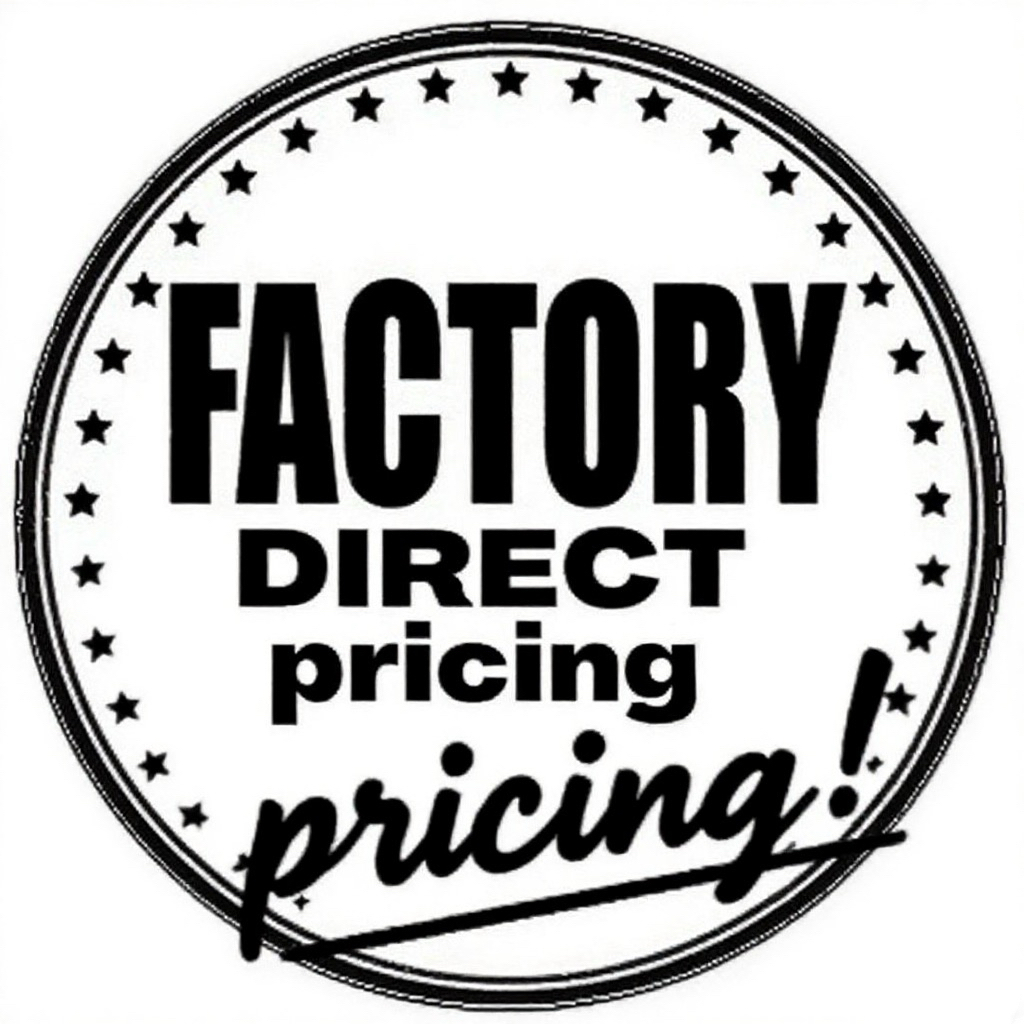Did your last supplier partnership end in disaster? Choosing the wrong factory leads to delayed shipments, poor quality, and endless stress for your business.
To choose the right supplier, you must look beyond price. Focus on verified certifications, proven production capacity, proactive communication, and their ability to handle customization. A true partner is a stable, transparent extension of your own team.
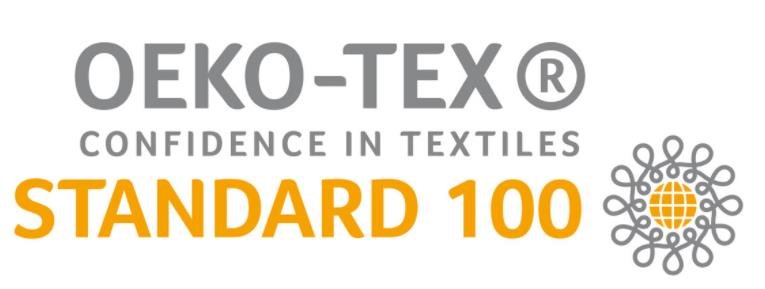
In my 20 years in the lingerie business, the biggest mistake I see buyers make is choosing a supplier based on the lowest price alone. It almost always ends badly. Choosing a manufacturer isn't just a transaction; it's a long-term partnership that can make or break your brand. The right partner provides stability, communicates honestly, and has the proven capacity to grow with you. As I always tell my clients, a supplier must pass your detailed audit before they can be trusted to produce your goods. Let's look at the key areas you need to investigate to find a factory that will help you succeed.
Why Do Factory Certifications Like BSCI & OEKO-TEX Matter So Much?
Worried a product recall could destroy your brand's reputation overnight? Sourcing from an uncertified factory is a huge risk that can lead to legal trouble and lost customer trust.
Certifications are your non-negotiable proof of quality and ethics. OEKO-TEX® 100 guarantees product safety from harmful chemicals, while BSCI ensures the factory follows ethical social and labor standards, protecting your brand at every level.
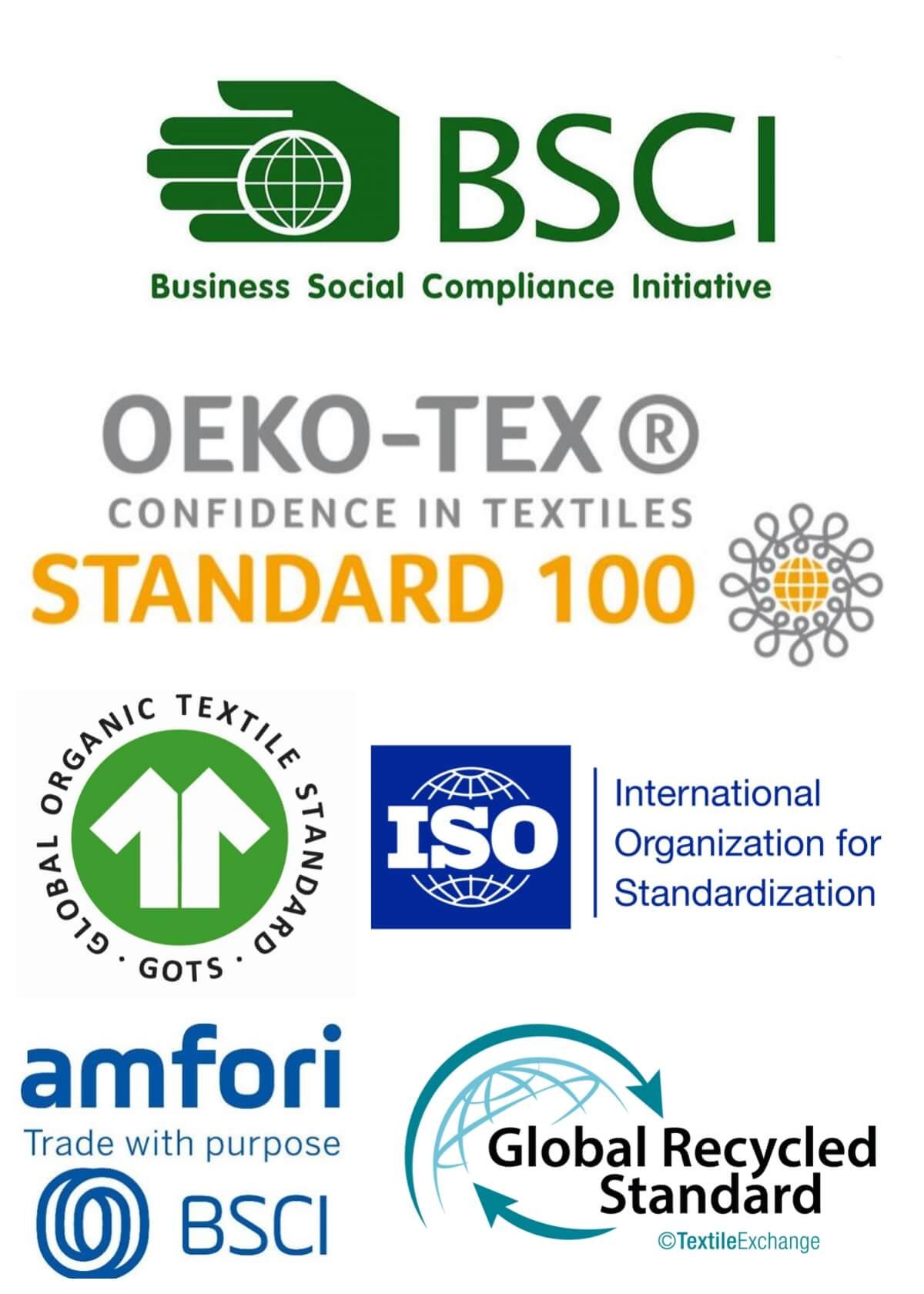
Certifications are not just logos on a website; they are your insurance policy. When you work with a factory that holds a valid OEKO-TEX® 100 certificate, you have proof that the fabrics and components are safe for your customers to wear against their skin. This is critical for selling in sensitive markets like the EU and North America. Similarly, a BSCI (Business Social Compliance Initiative) audit shows that the factory treats its workers fairly. This is not only the right thing to do, but it also signals a stable, well-managed workforce, which leads to more consistent product quality. Always ask for the certificate number and verify it on the official websites. A good factory will provide this information without hesitation. It's a simple step that separates professional manufacturers from risky operations and protects your brand from serious liability.
| Factor | Non-Certified Factory | Certified Factory (BSCI, OEKO-TEX®) |
|---|---|---|
| Product Safety | Unknown. High risk of harmful chemicals. | Proven. Materials tested and safe. |
| Market Access | Restricted in EU, North America. | Unrestricted. Meets global standards. |
| Brand Risk | High risk of recalls, lawsuits. | Low risk. Defensible quality standards. |
| Worker Stability | Unknown. High turnover can affect quality. | Stable. Fair labor practices lead to consistency. |
How Can You Really Evaluate a Bra Manufacturer’s Production Capacity?
Did a supplier promise they could handle your large order, only to fail? This common problem leads to production delays that cause you to miss entire selling seasons.
To evaluate real capacity, go beyond their claimed numbers. Ask for specific proof: their total number of sewing lines, monthly output records for similar products, and photos or videos of their production floor during a busy period.
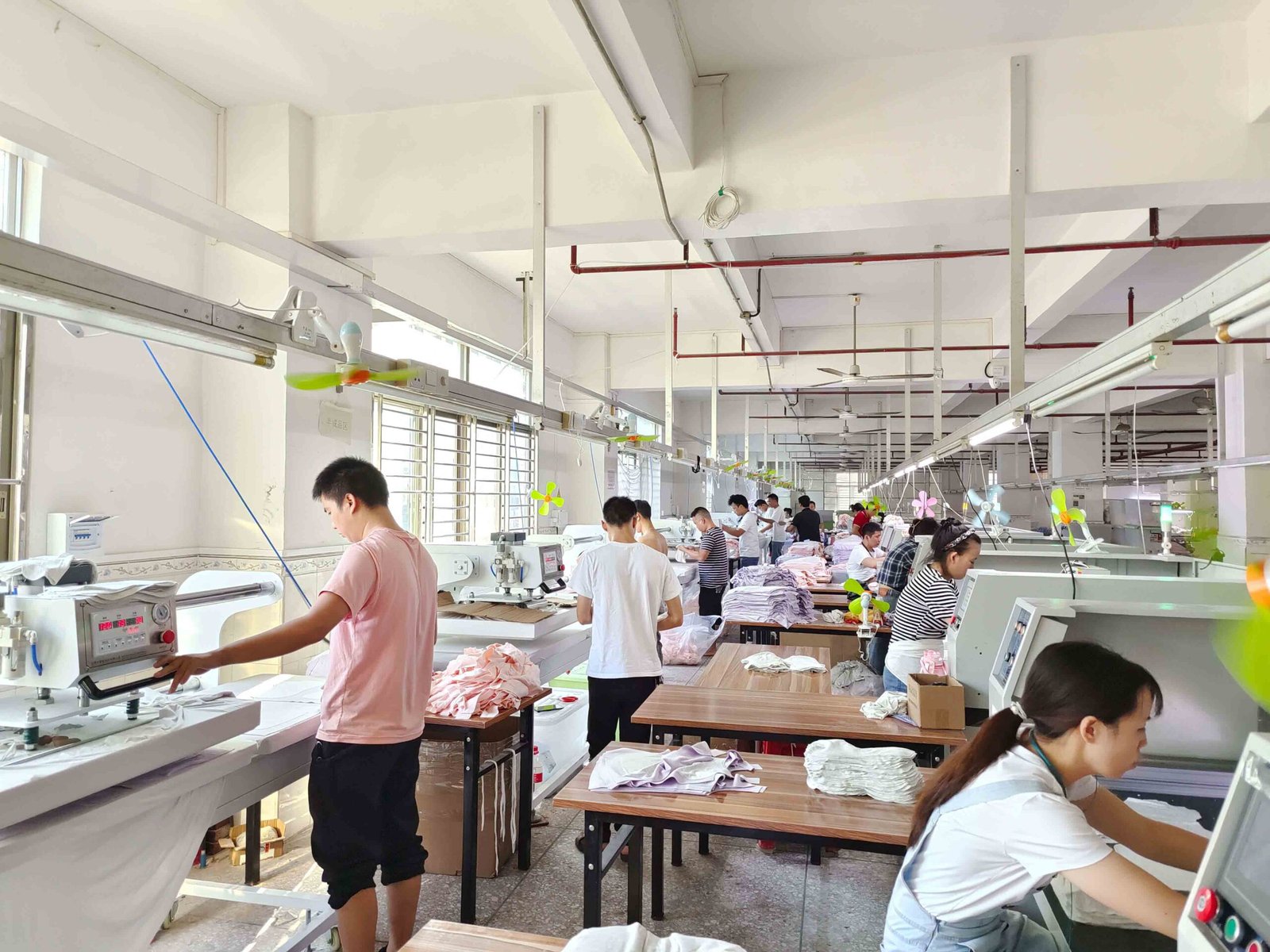
Many factories will tell you they can handle any order size, but you need to verify this yourself. A factory's true production capacity is not just a single number. It depends on how many other orders they are working on, the complexity of the products, and the efficiency of their operations. At our 10,000 square meter facility, we don't just state a number; we show the proof. I encourage buyers to ask very specific questions. Instead of "What's your capacity?", ask "How many dedicated sewing lines do you have for bra production?" or "What was your average monthly output for padded bras over the last six months?". A reliable factory can answer these questions easily. They should also be able to tell you about their equipment, like our own mix of traditional sewing, modern adhesive bonding, and seamless welding machines. This kind of detail shows they truly understand their own capabilities and are not just telling you what you want to hear.
What Communication Standards Separate a Top-Tier Factory from the Rest?
Are you tired of slow responses and vague answers from your supplier's sales reps? Poor communication is a major red flag that often leads to costly mistakes in production.
A top-tier factory provides a dedicated, fluent English-speaking contact who replies within 24 hours. More importantly, they offer proactive solutions, provide regular updates without being asked, and are honest about potential challenges.

This is one of the most critical pain points I hear from buyers like Mark in Canada. Effective communication is more than just speaking the same language. It's about having a partner who thinks ahead. A great factory sales rep doesn't just take your order; they analyze it. If they see a potential issue with a design that might be difficult or costly to produce, they will suggest a better alternative. They should be your eyes and ears in the factory, sending you photos of your production run and giving you updates before you even think to ask for them. The worst kind of supplier is a "yes-man" who agrees to everything and then fails to deliver. A true partner will be transparent and honest, even if it means having a difficult conversation about a delay or a production challenge. This builds trust and ensures there are no bad surprises later on.
Is It Possible to Get Customization Without Compromising Your Delivery Time?
Do you need to create a unique, custom-designed bra for your brand? Many brands worry that customization will add months to their production timeline, causing them to miss market trends.
Yes, absolutely. A well-organized factory with a strong in-house development team and established supply chain can integrate customization into a standard production timeline. Fast sampling, from 7 to 10 days, is a key indicator of this capability.

Many buyers believe customization has to be slow, but that is not true if the factory is set up for it. The key is having strong internal processes. At Xiesheng, we have a dedicated team for product development and sampling. When you send us a tech pack for a custom bra, we don't have to outsource the pattern-making or sample sewing. It all happens right here. We also have long-term relationships with dozens of fabric and component suppliers. This means we can source custom materials much faster than a factory without these connections. The result is that we can turn a new design into a physical sample in just 7-10 days. This speed allows you to approve samples quickly and move into bulk production without major delays. Customization is not an obstacle for a prepared factory; it is a core part of our service.
Factory Tour or Remote Audit: What’s the Best Way to Vet a New Supplier?
Are you unable to travel overseas to visit a potential new factory? This makes it hard to verify if they are a real manufacturer or just a trading company with a nice website.
A physical tour is always the gold standard. However, a live, unscripted video audit is a highly effective alternative. It allows you to inspect their facilities, see production in real-time, and verify their legitimacy from anywhere in the world.
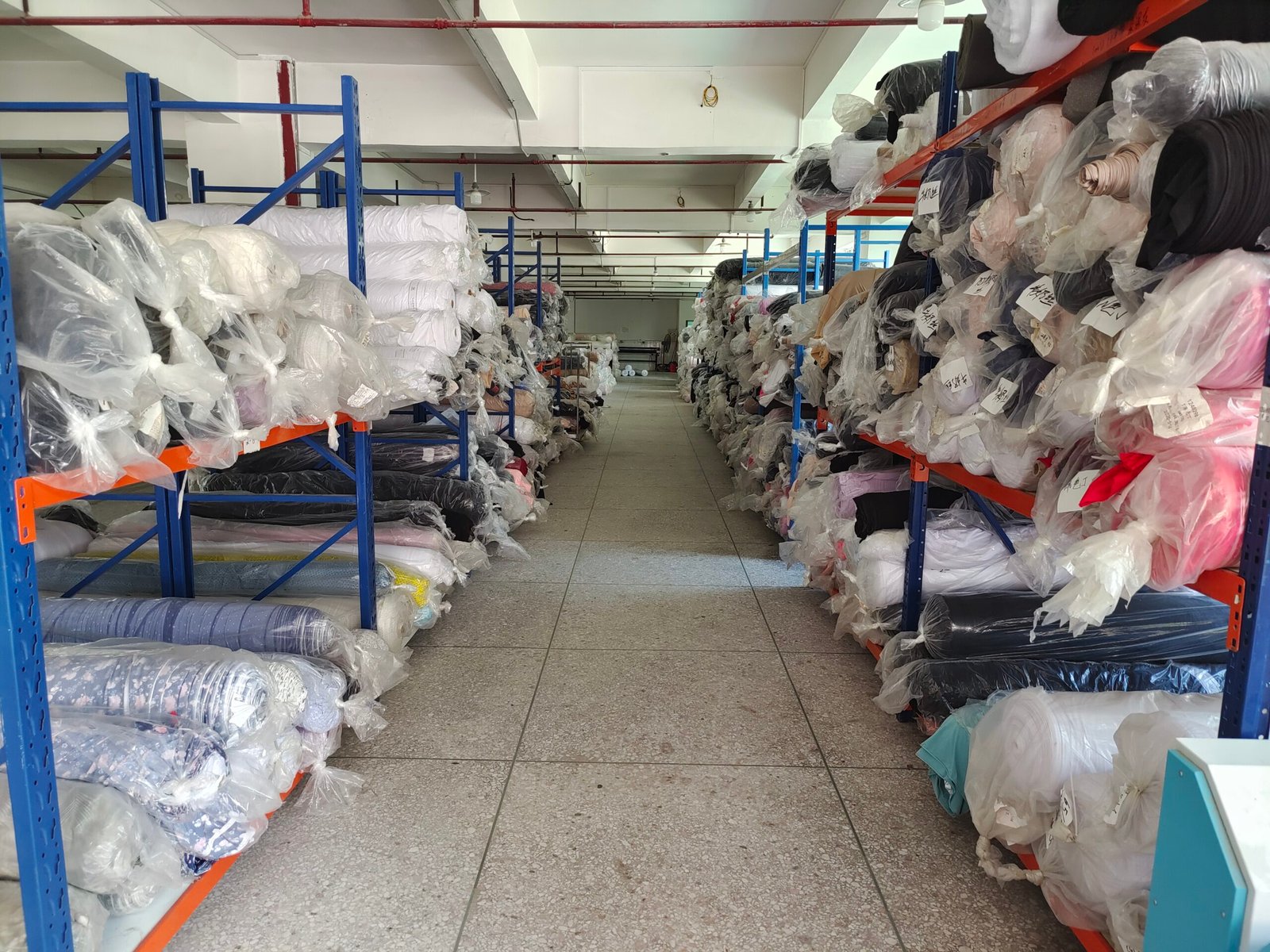
In today's world, you don't always need to get on a plane to inspect a factory. While I always welcome clients to visit us in person, a well-structured remote audit can tell you almost everything you need to know. The key is to insist on a live video call. A pre-recorded marketing video can hide many problems. During the live call, be assertive and act as if you were walking through the factory yourself. Ask your contact to show you specific areas. Start with the raw materials warehouse, move to the cutting tables, then to the sewing lines, the quality inspection station, and finally the packing area. Ask them to show you their business license on camera. Ask to speak briefly with the production manager. A legitimate factory will be proud to show you its operations. This process builds immense trust and confirms you are dealing with a real, capable manufacturer.
Conclusion
Choosing a bra manufacturer is a critical business decision. Prioritize transparent partners with verified certifications, proven capacity, and excellent communication to build a stable and profitable supply chain.

